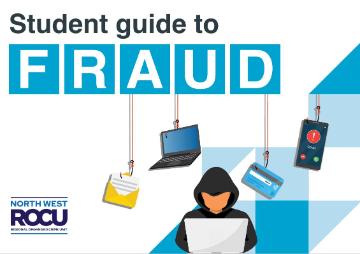Opening a student bank account can help you to manage your finances. You’ll be able to set up Direct Debits for your bills and keep an eye on your spending using mobile banking, you can check your balance on the go and receive notifications if your balance dips below a certain amount. Student bank accounts are aimed at students in higher education. Many offer freebies and usually they come with an interest free overdraft. An interest-free overdraft can be a sensible way of borrowing money if used correctly. Make sure that you stay within your limit so that you don’t incur charges and try to pay it off by working part-time or during the holidays.
Shopping around
With most major high street banks offering student bank accounts, it is a good idea to shop around for incentives. Many banks offer authorised interest-free overdrafts and free gifts. The UCAS website has some useful advice on how to choose a bank account.
After Graduation
It may seem like a long way off, however, after university you can switch your student account to a graduate account to help clear your overdraft. Your current bank will usually switch your student account to a graduate account but you can shop around to obtain the best graduate account.
Credit
Using credit can be helpful in emergencies, but it’s important to understand the costs and borrow responsibly to avoid long-term debt. Tread carefully if you are considering using any source of credit and remember that credit is debt and will always have to be paid back. Wherever possible, stick to the minimum amount you need to borrow and check that you can afford the re-payments. Always read the small print before signing anything as all credit agreements are legally binding.
Try to avoid short-term or "pay-day" loans at all costs as the the interest rates can be very high. Klarna, a leader of buy now pay later has become a popular app for Students. Be informed - find out more.
If you are having difficulty keeping up re-payments on credit cards, store cards, or any other source of credit, please contact a Money Adviser for advice.
Keep up your re-payments, as late or missed payments will incur charges and they may affect your credit rating.
Credit Rating
-293x195.jpeg) A credit rating (or credit score) is a number that shows how reliable you are at borrowing and repaying money. Lenders use it to decide whether to give you credit, like a loan or credit card, and what interest rate to charge. A good score can save you money. Banks will also carry out a credit check before they open your account.
A credit rating (or credit score) is a number that shows how reliable you are at borrowing and repaying money. Lenders use it to decide whether to give you credit, like a loan or credit card, and what interest rate to charge. A good score can save you money. Banks will also carry out a credit check before they open your account.
Further Support
Save the Student best student banking guide

-317x179.jpeg) Managing your money well is key to making the most of student life. From rent and bills to books and nights out, student finances can be a juggling act, but with the right tools and advice, it doesn’t have to be stressful. This page is your go-to guide for navigating the world of student living and finance, helping you stay in control and confident about your money.
Managing your money well is key to making the most of student life. From rent and bills to books and nights out, student finances can be a juggling act, but with the right tools and advice, it doesn’t have to be stressful. This page is your go-to guide for navigating the world of student living and finance, helping you stay in control and confident about your money.-265x176.jpeg) Being a student means you can take advantage of generous student discounts both online and in store. Many of these offers are also available to students studying on an apprenticeship programme. The links below take you to some of the most popular discounts and deals and it’s always good to ask if student discounts are available, whether you’re eating out, shopping, or getting a haircut.
Being a student means you can take advantage of generous student discounts both online and in store. Many of these offers are also available to students studying on an apprenticeship programme. The links below take you to some of the most popular discounts and deals and it’s always good to ask if student discounts are available, whether you’re eating out, shopping, or getting a haircut..jpeg)
 Student Money Matters is a free digital magazine created by NASMA (National Association of Student Money Advisers), offering practical advice and insights to help students manage their finances with confidence. From budgeting tips and debt advice to updates on student funding and cost-of-living support, each issue is packed with relevant, student-focused content. Whether you're navigating your first student loan or looking for ways to save on everyday expenses, Student Money Matters is your go-to resource. The latest
Student Money Matters is a free digital magazine created by NASMA (National Association of Student Money Advisers), offering practical advice and insights to help students manage their finances with confidence. From budgeting tips and debt advice to updates on student funding and cost-of-living support, each issue is packed with relevant, student-focused content. Whether you're navigating your first student loan or looking for ways to save on everyday expenses, Student Money Matters is your go-to resource. The latest 